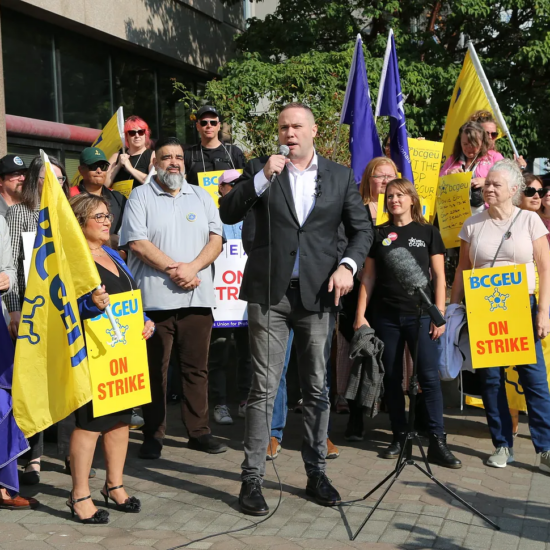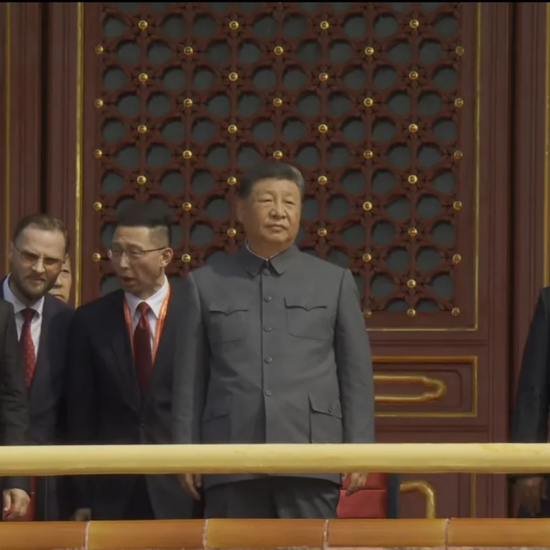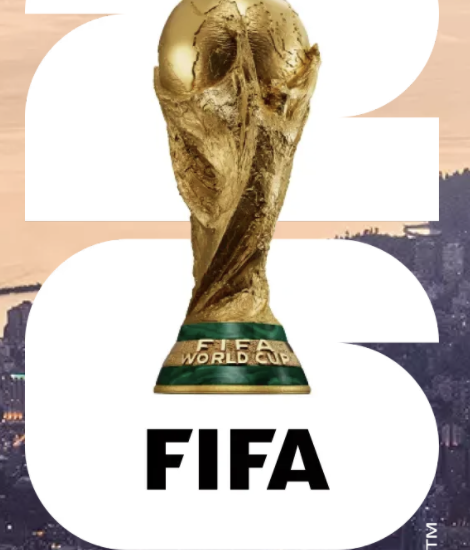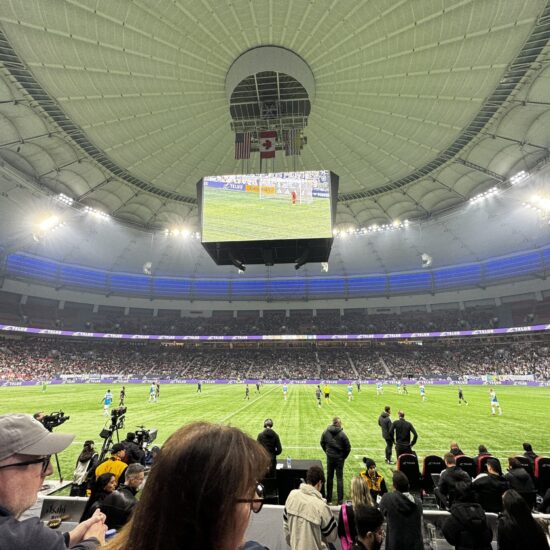
Bob Mackin
The Public Order Emergency Commission (POEC) hearings into the use of the Emergencies Act to end the trucker convoy blockades climaxed Nov. 25 with testimony from Prime Minister Justin Trudeau.
The commissioner of the RCMP already testified the force didn’t ask for the law to be invoked. The director of CSIS said there was no national security threat, but said the law was needed. Meanwhile, evidence showed that the ministers of justice and public safety discussed calling in the army and deploying tanks to remove protesters.
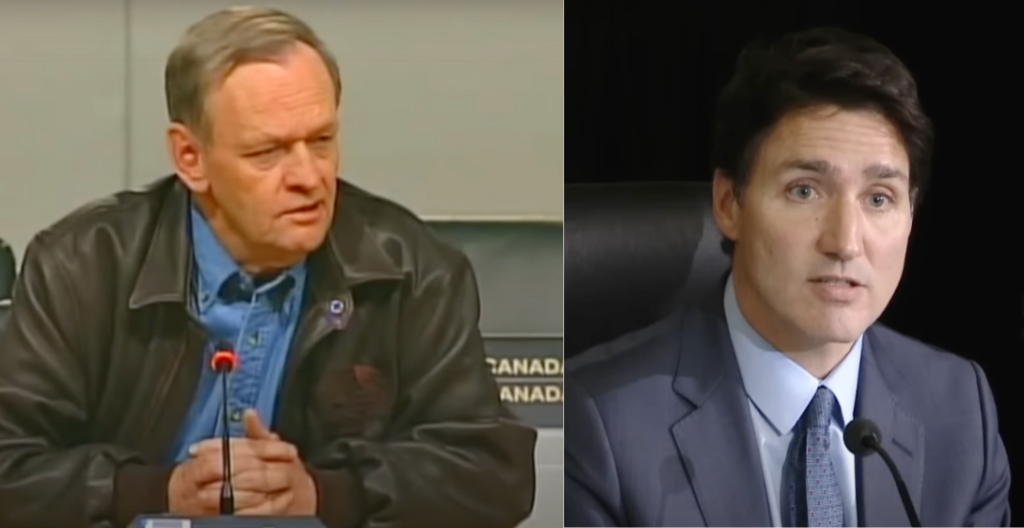
Jean Chretien, Nov. 25, 1997 (Nardwuar); Justin Trudeau, Nov. 25, 2022 (POEC)
The Ottawa inquiry was required under the Act to decide whether the government was justified in declaring the national emergency from Feb. 14-23 and whether the measures were appropriate and effective in dealing with the protests against COVID-19 vaccination and pandemic restrictions in Ottawa, Windsor, Ont., Coutts, Alta., Emerson, Man. and the Pacific Highway border crossing in Surrey.
Mark Twain famously said history doesn’t repeat itself, it rhymes. This is not the first time a Liberal Party Prime Minister and his inner circle were accused of political pressure on police to crack down on peaceful protesters while the world watched.
The POEC hearing is happening, coincidentally, on the 25th anniversary of Vancouver hosting the ninth Asia Pacific Economic Co-operation leaders’ summit in 1997.
It was Vancouver’s biggest event between Expo 86 and the 2010 Winter Olympics.
More than 8,600 delegates from 18 Pacific Rim nations participated. The Vancouver Convention Centre was the site for most events and B.C. Place Stadium hosted a gala banquet.
The leaders’ summit was Nov. 25, 1997 at the University of B.C.’s Museum of Anthropology, where Prime Minister Jean Chretien plied the visiting leaders with shiny, leather Roots jackets for a photo op.
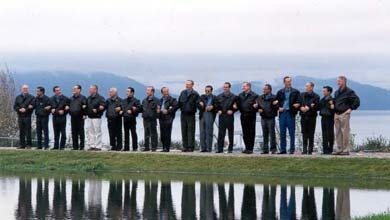
APEC leaders at the 1997 summit at UBC (APEC)
They met to talk trade, e-commerce, sustainable development, climate change, women in economic development and education and training. They endorsed a $60 billion International Monetary Fund package to battle the so-called “Asian economic flu” and signed the Vancouver Framework for Enhanced Public-Private Cooperation on Infrastructure.
Peru, Russia and Vietnam were admitted as members for the 1998 summit.
What Vancouverites remember most, however, is how the RCMP handled anti-globalization protests, which included pre-emptive arrests, the removal of a Tibetan flag from the Graduate Student Society Building and even the arrest of law student Craig Jones — who had innocently placed paper signs on a security fence outside Green College residence that read “democracy, human rights and free speech.”
More than 2,500 protesters planned to walk to the barricades near MOA and surrender to police in front of media. They were motivated by opposition to Indonesia’s President Suharto and China’s Jiang Zemin. The former for human rights abuses in East Timor. The latter, for the legacy of the 1989 Tiananmen Square massacre and Beijing’s ongoing control of Tibet.
Some scaled a security fence near the Rose Garden Plaza, sparking violent clashes with police who ran rampant, deployed canisters of pepper spray in every direction and arrested 48.
An on-again, off-again public inquiry was eventually held under retired judge Ted Hughes, who found that police were under pressure from the Prime Minister’s Office and they violated the protesters’ civil liberties.
Chretien famously joked to reporters on the day of the riot, while wearing his leather Roots jacket, about the pepper spray Mounties used to quell protesters: “Pepper, I put it on my plate!”
Hughes did not have power to order Chretien’s testimony and the PM declined an invitation to appear.
The Commission for Public Complaints Against the RCMP inquiry evaluated 52 complaints of police wrongdoing and, in many cases, found the conduct “inconsistent with the Charter and not appropriate for the circumstances.” No RCMP officer was charged, however.
Hughes’ 2001 report recommended proper training of police assigned to public events, protesters be given a “generous opportunity” to see and be seen, and that police “brook no intrusion or interference” from government officials.
Late UBC professor of law history Wesley Pue wrote in the Osgoode Hall Law Journal in spring 2001 that the most-stunning finding was the PMO meddling in the RCMP security operation. The Mounties, he wrote, succumbed to government influence and intrusion.
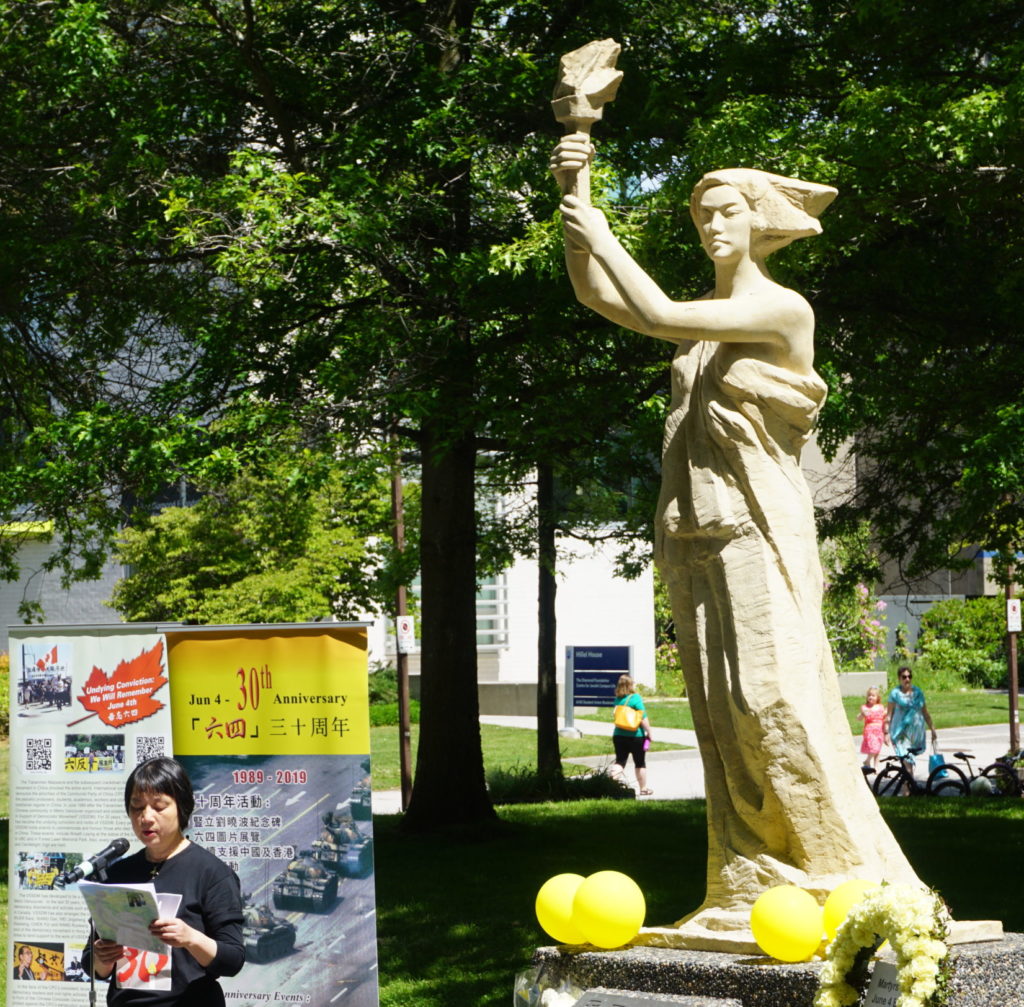
UBC’s 30th anniversary ceremony of the Tiananmen Square massacre in 2019. (Mackin)
“This is the first such authoritative finding of wrongful interference with the police on the part of any Canadian prime minister or his or her office,” Pue wrote.
Pue described the security operation as a comedy of errors and likened the RCMP to keystone cops. On the day of the summit, busloads of officers were taken away from where they were needed, crucial information about co-operation from law-abiding protesters was not communicated and disinformation was acted on.
“The RCMP command left its officers open to improper pressure from the Prime Minister’s Office and from the Chinese consulate,” Pue wrote.
Jones became president of the B.C. Civil Liberties Association, a law professor at Thompson Rivers University and, most-recently, general counsel to Premier David Eby.
In a 2017 interview, he remarked on the long four years to get the APEC inquiry’s conclusion.
“In a way, kind of gratifying to participate in that process,” Jones said. “I was quite struck by how offended Canadians seemed to be by what happened and how willing they were to set up a process to figure out exactly what happened and see what they could do to correct it.”
Those involved in the trucker convoy protests won’t have to wait so long. But will they share that sentiment about Commissioner Paul Rouleau’s inquiry after it’s done?
The POEC final report is due by Feb. 20 in the House of Commons and Senate.
Support theBreaker.news for as low as $2 a month on Patreon. Find out how. Click here.






